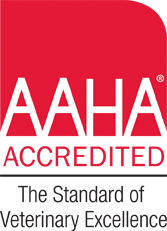Has Your Pet Had a Dental Exam Lately?
- HVW
- Feb 2, 2023
- 2 min read
Your pets oral health is an important part of their overall health, their teeth and gums should be examined at least once per year to help detect any early signs of dental diseases. If left untreated, your pet could be at risk for diseases of the heart, kidneys and liver.
The 4 stages of dental disease

Stage 1:
The first stage of dental disease is gingivitis, which is the inflammation of the gums. It presents as a thin red line on the gums at the base of the teeth (gumline) and occurs due to plaque and bacteria. Gingivitis can be reversed if treated early.

Stage 2:
Early periodontitis is when there is less than 25% of bone loss surrounding the root of the tooth. You will see gingivitis, yellow or brown tartar on the tooth along with bad breath. It is at this stage that a professional dental cleaning under anesthesia is necessary.

Stage 3:
Known as moderate periodontitis occurs when there is 25%-50% bone loss, diagnosed by x-ray. The gums will detach from the tooth forming periodontal pockets where bacteria and plaque can collect even further. At this stage your pet will experience significant pain and teeth which are broken or have cavities may have to be extracted.

Stage 4:
Advanced periodontitis is the final stage. Your pet will be in extreme pain and is at risk of losing many teeth. There is now a significant amount of bacteria in the mouth which can be absorbed into the bloodstream and travel to other areas of the body including the kidneys, liver and heart.
So what can be done to prevent this? Aside from dental cleanings done under anesthesia by your veterinarian, there are a few things you can do at home to be proactive about your companions oral health. Daily brushing of the teeth is encouraged, however we know this is not always easy to do. You can apply enzymatic toothpaste directly on the teeth and gums. It is important that it be enzymatic, because these enzymes help break down the harmful bacteria. You can also look for enzymatic dental chews. Raw bones can be given to naturally remove the plaque and tartar (give raw bones only! Cooked
bones may splinter and cause serious and sometimes fatal gastrointestinal issues)



Orange Dental is a trusted Dental Company in Toronto, providing top-quality care with expert professionals and modern technology for a healthy smile.